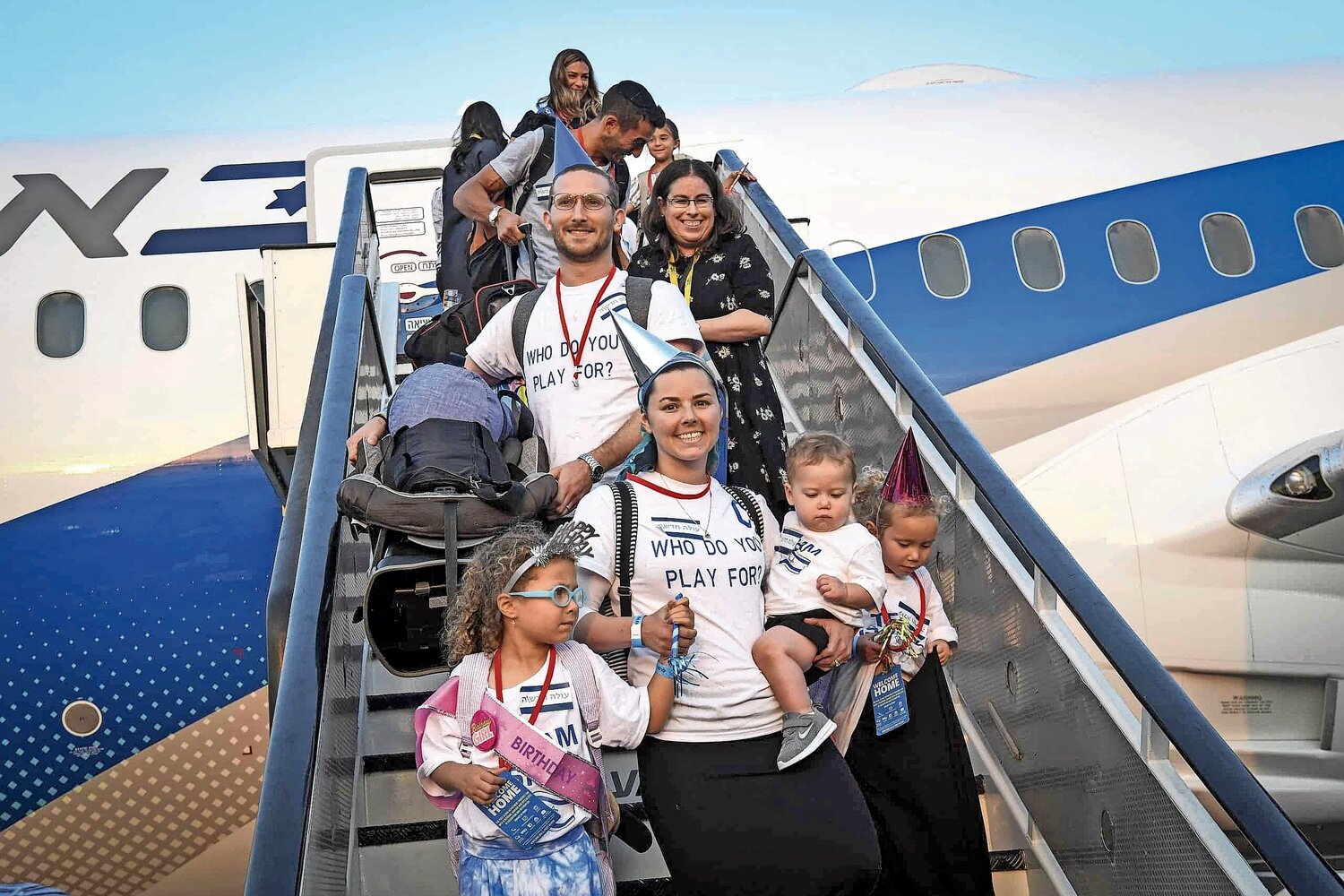For the love of Israel: Making aliyah post-Oct. 7
Until Oct. 7, the number of people making aliyah in 2023 was in decline. The last three months changed that trajectory.
Since the outbreak of the war, there has been a significant increase in the number of new immigration files opened — a figure that will necessarily impact immigration data in the first months of 2024.
According to Qualita, the umbrella organization of French immigrants in Israel, there has been a 500% surge in the number of aliyah files opened in France. “The antisemitism and thousands of violent incidents against Jews in France have led to an unprecedented desire for French Jews to immigrate to Israel and assist in the war effort,” said CEO Ariel Kandel.
“This is an opportunity that must not be squandered. The State of Israel needs to initiate and implement a program to bring new immigrants as soon as possible, to strengthen the state during and after the war.”
According to Nefesh B’Nefesh, which operates in North America, since the start of the war, some 4,200 aliyah files have been opened with them — an increase of 120% compared to the same period the year before (October to early January).
Nefesh B’Nefesh co-founder and Executive Director Rabbi Yehoshua Fass told Israel Hayom: “North American Jewry is voting with its feet and choosing to immigrate to Israel in its difficult hour. The war did not cause Jews who wanted to immigrate to cancel their plans — it even intensified the urgency to get to the land, out of a sense of belonging and solidarity.”
The Aliyah and Integration Ministry, the Jewish Agency and other organizations also estimate that the reasons for the spike in requests to open immigration files are the war in Israel and the growing antisemitism worldwide. However, half of the candidates who opened aliyah files in the United States stated Zionism as the main reason for their aliyah.
According to research conducted at the Hebrew University of Jerusalem’s Kantor Center for the Study of Contemporary European Jewry, an antisemitic incident occurs somewhere in the world every 80 seconds.
According to the organization Fighting Online Antisemitism, which prepared a report together with the WZO, since the outbreak of the war, there has been a 300% spike in antisemitic content on social networks.
“The immigration of many Jews to Israel during the war and the tremendous spike in opening immigration files are an important Zionist act and expression of solidarity with the state at this time,” said Aliyah and Integration Minister Ofir Sofer.
Doron Almog, chairman of the Jewish Agency for Israel, added: “Immigration to Israel at times like these is yet another testament to the degree to which Diaspora Jewry has partaken in building the State of Israel and its revival. I welcome every one of the immigrants who are building their home in Israel these days.”
Lior Pirouzian, 25, arrived in Israel in the last week of December through Nefesh B’Nefesh. She grew up in New York, the eldest daughter of an Israeli mother and a father who fled Iran during the revolution. Part of her father’s family still resides in Iran. Pirouzian is a nurse by profession, and before arriving in Israel she completed her nursing studies and began working as a nurse in a hospital.
“My entire life, since I was five years old, I had dreamed of immigrating to Israel and building my life here,” she said, adding that she decided to come now and take this step specifically because of the war. “I felt in my gut that this was the right thing to do. I wasn’t scared, my heart so wanted to come here. I said to myself that this is the time to do it. It’s either now or never.”
She said that while she did not fear the rising antisemitism in New York, she did feel uncomfortable:
“The situation is not easy. You’re a target because you’re Jewish. There are more pro-Palestinian and anti-Israel demonstrations. There were times I didn’t feel comfortable speaking Hebrew in Manhattan. There is some fear. That is not our country — and that’s another reason why I wanted to come, to feel more belonging.”

 43.0°,
Partly Cloudy
43.0°,
Partly Cloudy 




